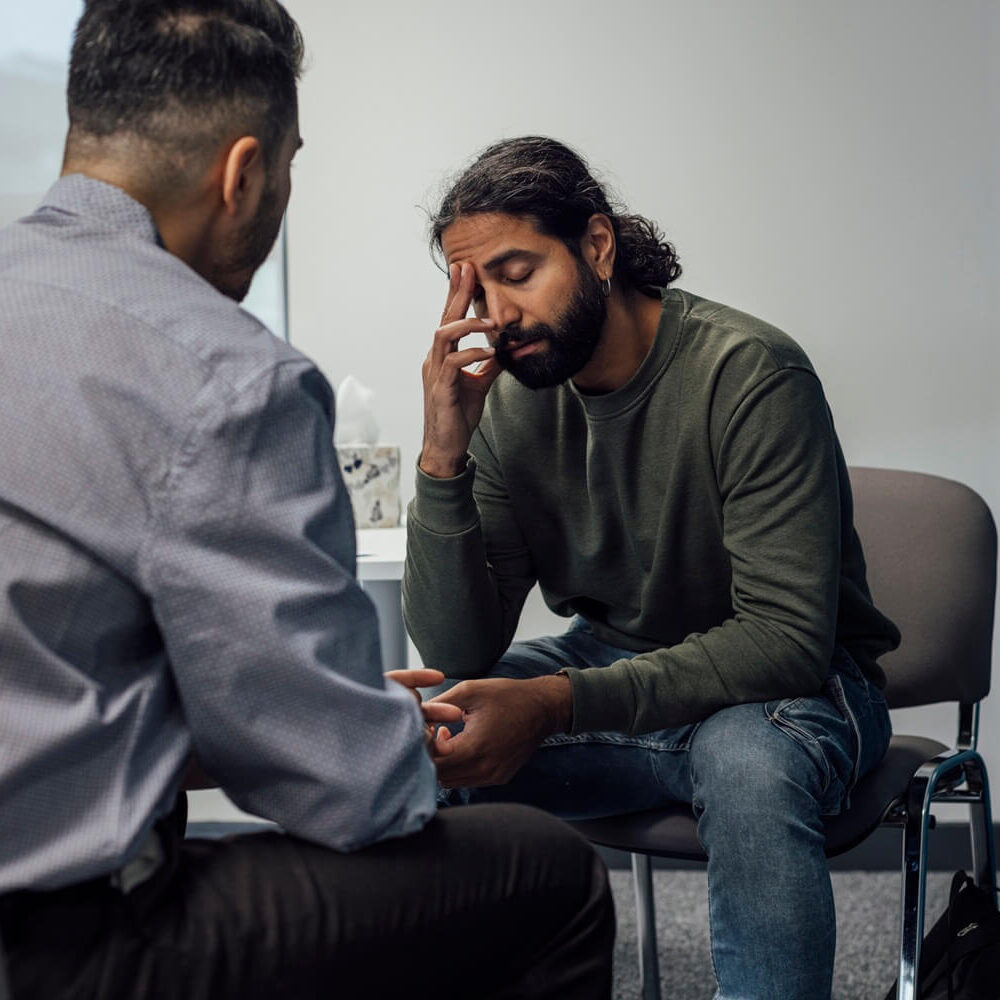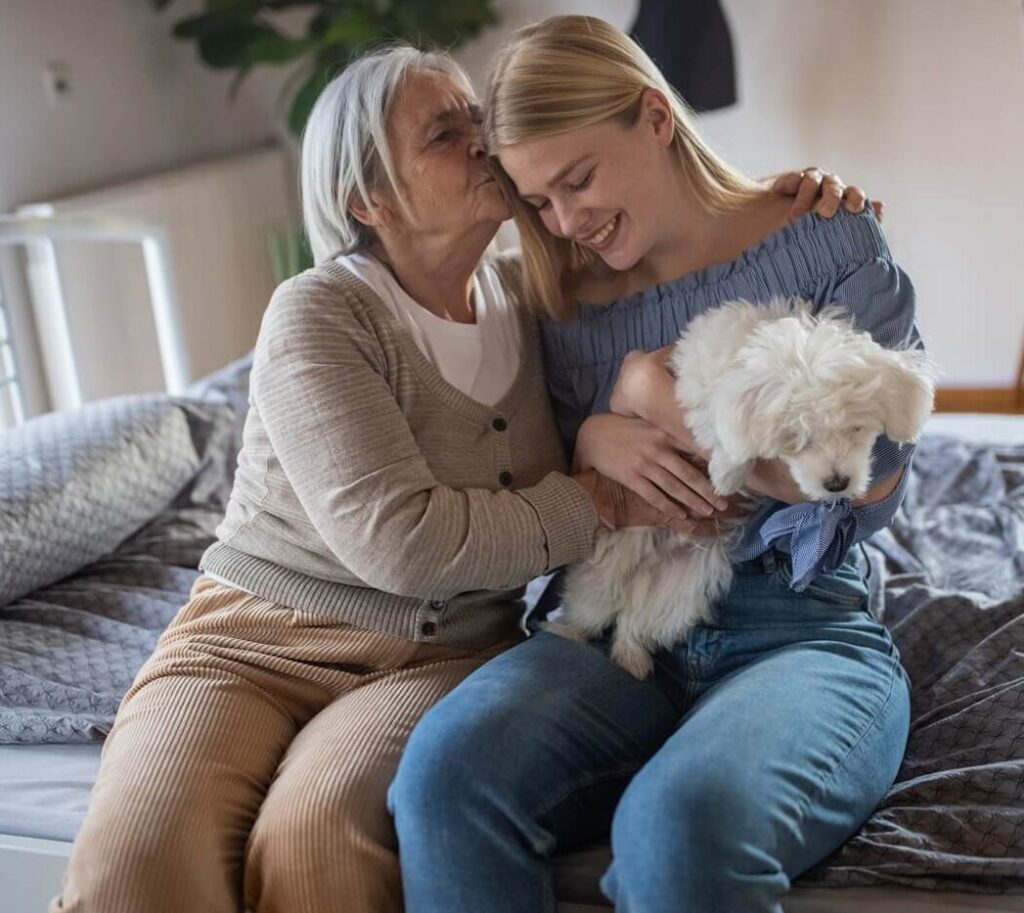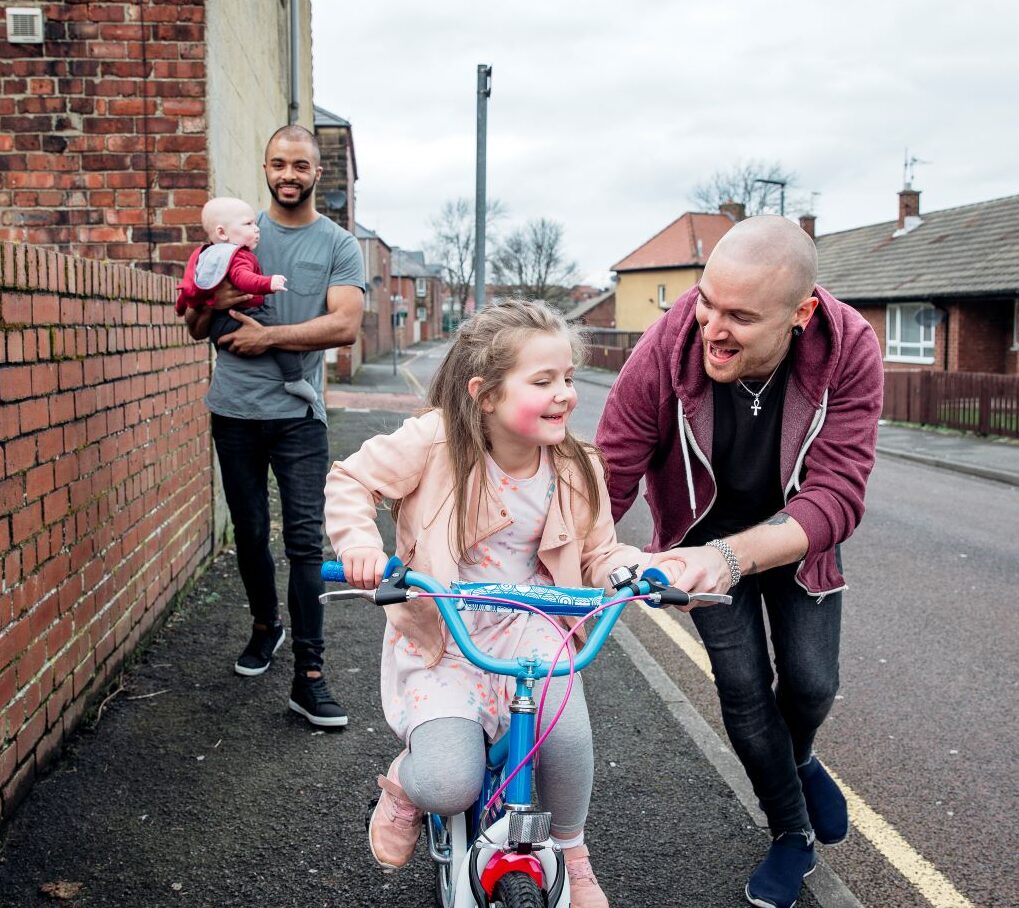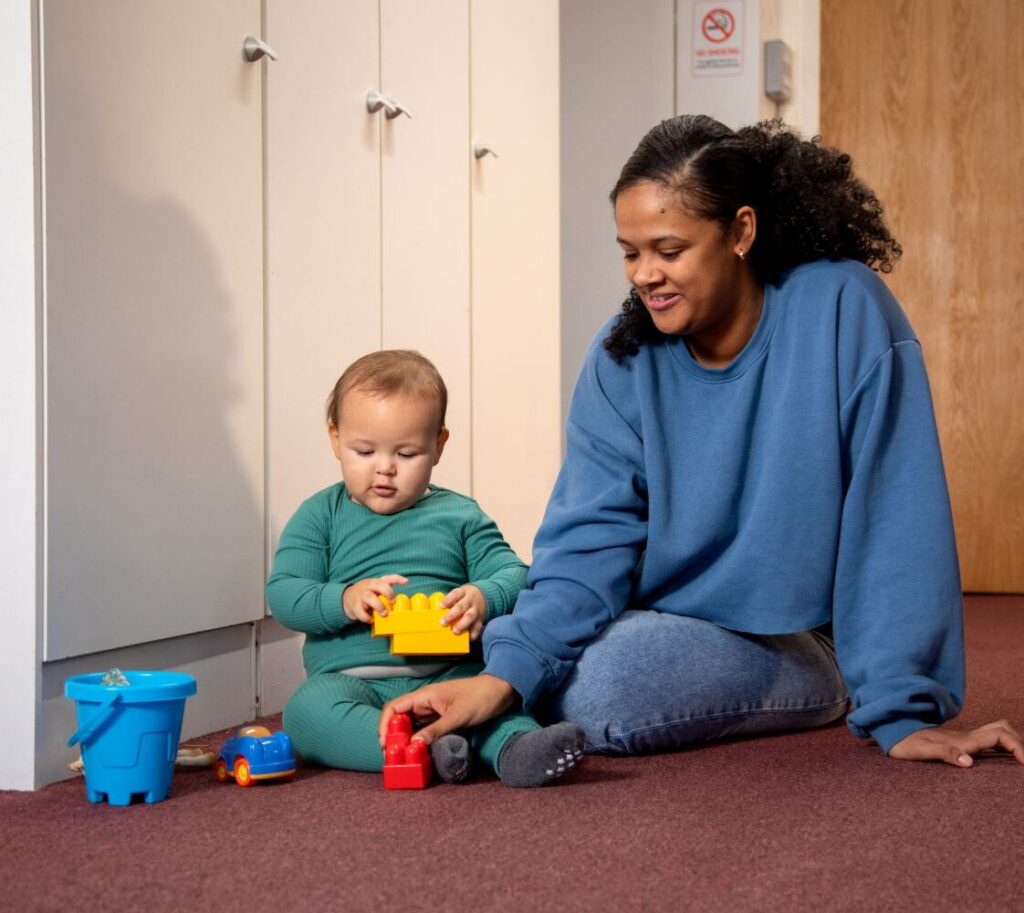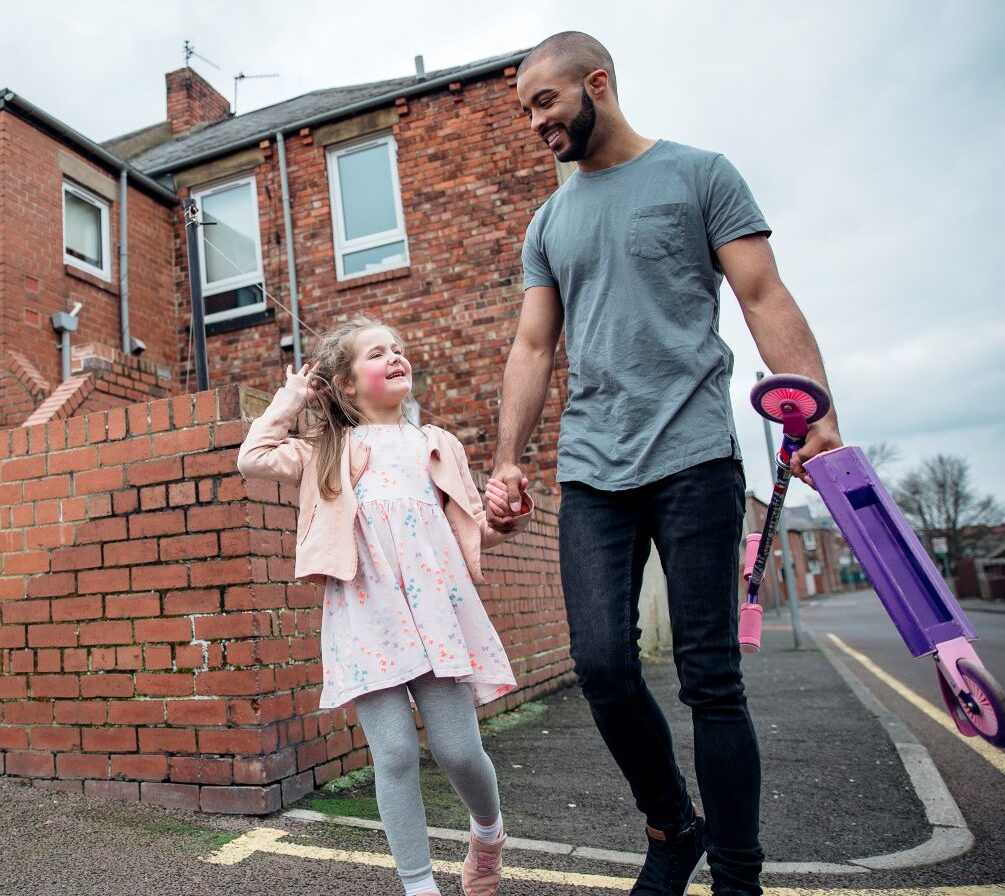Losing a child to adoption is one of the most difficult experiences a parent can face. The process is often long, intense, and emotionally draining. As a birth parent you’ll likely feel a wide range of very strong emotions, which will continue after the process is complete. If you’re unsure what you can do now, we’re going to look at the available support for birth parents after adoption.
For this article, we’ve spoken to Emma, Kristy and Andy to get their thoughts around the importance of support for birth parents after adoption. Emma works for PAC-UK, Family Action’s specialists in supporting all affected by adoption, and Kristy and Andy are birth parents who have had their own different experiences of their children being adopted. Read on for their guidance on moving forward and beginning to heal when you’ve been through this traumatic experience.
Understanding the emotional impact
Losing a child to adoption is an intensely traumatic experience, as Kristy explains: “[There’s] so much trauma, and the effect isn’t just on us at that time. The ripple effect is on the whole family, you know, grandparents, aunties, brothers, siblings and it goes on through life. It doesn’t leave us from when it starts to be honest.” For many, the idea of seeking help feels out of reach – not because it isn’t needed, but because overwhelm and exhaustion have taken over, or perhaps you don’t know who to trust.

Unlike grief following a death, there’s no clear script for what to do or how to feel when your child is still out there, but no longer with you. This is known as disenfranchised grief – grief that isn’t recognised or acknowledged by society. It can be hard to know what to do, and you may feel there’s no space to talk about what you’ve lost. That can make what you’re feeling even more isolating and harder to process.
You might find yourself wondering when it will end, or when you’ll feel better. Some days you might feel better able to cope, and other days everything might feel too much. That swing between functioning and feeling stuck is completely normal. “It’s not moving on, at the end of the day,” Andy said. “It’s just taking another step forward and trying to get on with your life.” Giving yourself space to feel what you feel is important.
Feeling overwhelmed is common
If you have a large family or children with different care plans, things can get more complicated. Some children might be in long-term foster care, others with special guardians, and others adopted – and each might have different rules and expectations. This may feel unfair or confusing.
During adoption proceedings, you’re surrounded by professionals like social workers, legal teams, and assessors. There will be lots of jargon – words and terms you might be unfamiliar with. Kristy added: “It can be really hard to understand what’s going on altogether, and that understanding often doesn’t come until years after.”
- Related content: Adoption and special guardianship glossary
You may also feel like you’re getting mixed messages at times, which can be hard to deal with. When Andy was going through court proceedings during his daughter’s adoption, he was told he couldn’t look after her because he didn’t have a job. Andy explained: “I found a job and then they said I couldn’t look after my daughter because I’ve got a job and I wouldn’t have enough time for her.” Andy worked long hours to provide for his family, but the experience left him feeling like he couldn’t win.
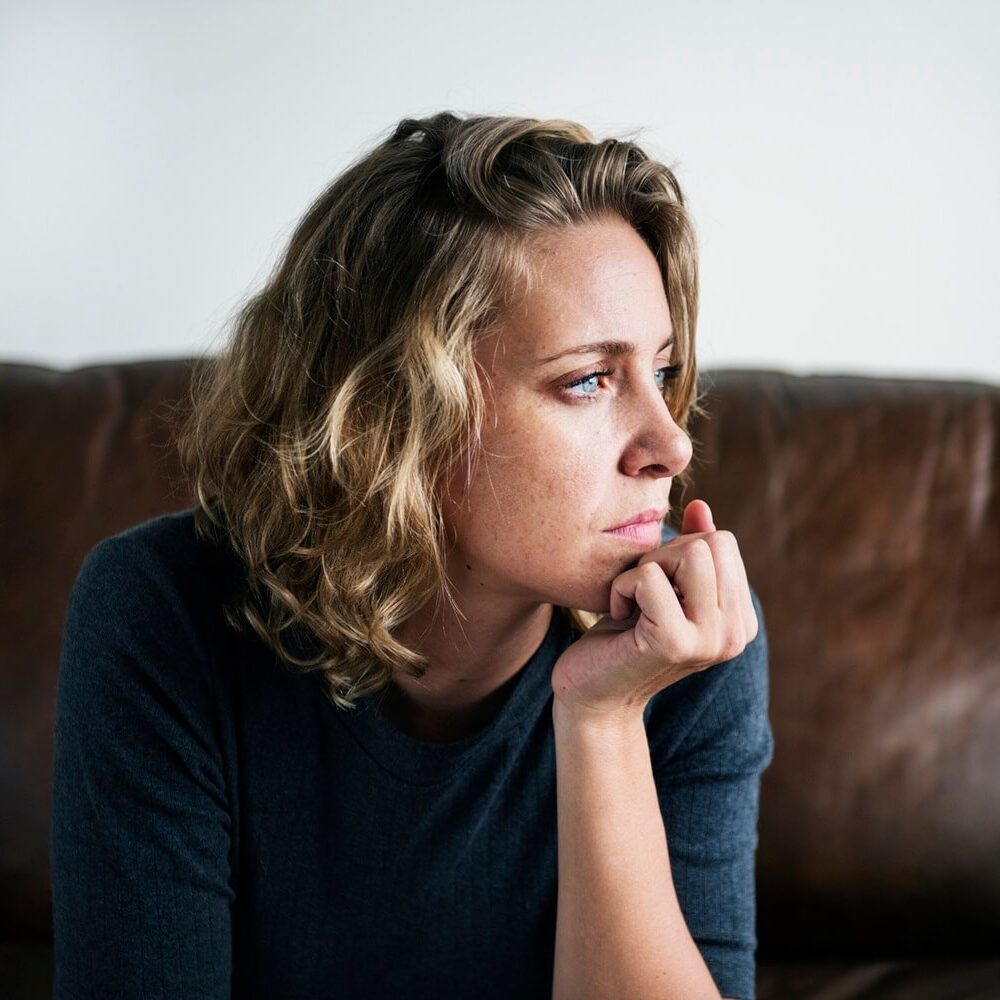
What support there is often drops away
Once the adoption order is made, contact from social care usually ends. You might still be involved in letterbox contact or reach out for post-adoption support, but the intense involvement disappears. Many parents describe it as feeling like a full-time job, with all the meetings, court hearings and assessments. Once your child is placed, it all stops. That shift can be jarring and it can leave you feeling lost – especially if you were in ‘doing mode’ and now there’s nothing to do.
There’s often not enough support during the process, Kristy said. “The problem that we’ve got is that we don’t have enough support [for] these birth parents. Nobody’s there to support you. They’re all there for the child.” The system is set up to protect children, but this can mean birth parents are left without support – even if they need help getting out of a bad situation.
If you go on to have other children
For parents who go on to have other children in their care, there’s often a new layer of complexity. Kristy said: “I think there’s a lot out there that think that having another child makes it better. It doesn’t. If anything, it’s 10 times harder.” Andy agreed, adding: “There’s still missing pieces.”
You might carry guilt about the children you’re no longer parenting, even while doing your best for the ones you’re raising now. Kristy gave birth to her son eight months after the final hearing for the adoption of her two daughters. “I brought him up on my own for 19 years. Same relationship, same dad. It was all domestic violence [but] I was allowed to keep that boy because the ex-partner hadn’t hit me for 12 months. You know, it was like, how do you get your head around that?” This is a perfect example of why support for birth parents is so important.
Support available from PAC-UK
PAC-UK is a third-party organisation supporting those in England, which means it’s completely unrelated to any of the social workers or other professionals you may have encountered – although they can refer you for support. If you’re in a position where you’re struggling to trust professionals, or you’d just prefer to get in touch directly, you can do that by contacting the advice line via phone (0300 1800 090) or email ([email protected]).
The type and amount of support we offer depends on where you live, but in our initial conversation we’ll work to understand what kind of support feels right for you. Let’s take a more in-depth look at the support on offer.
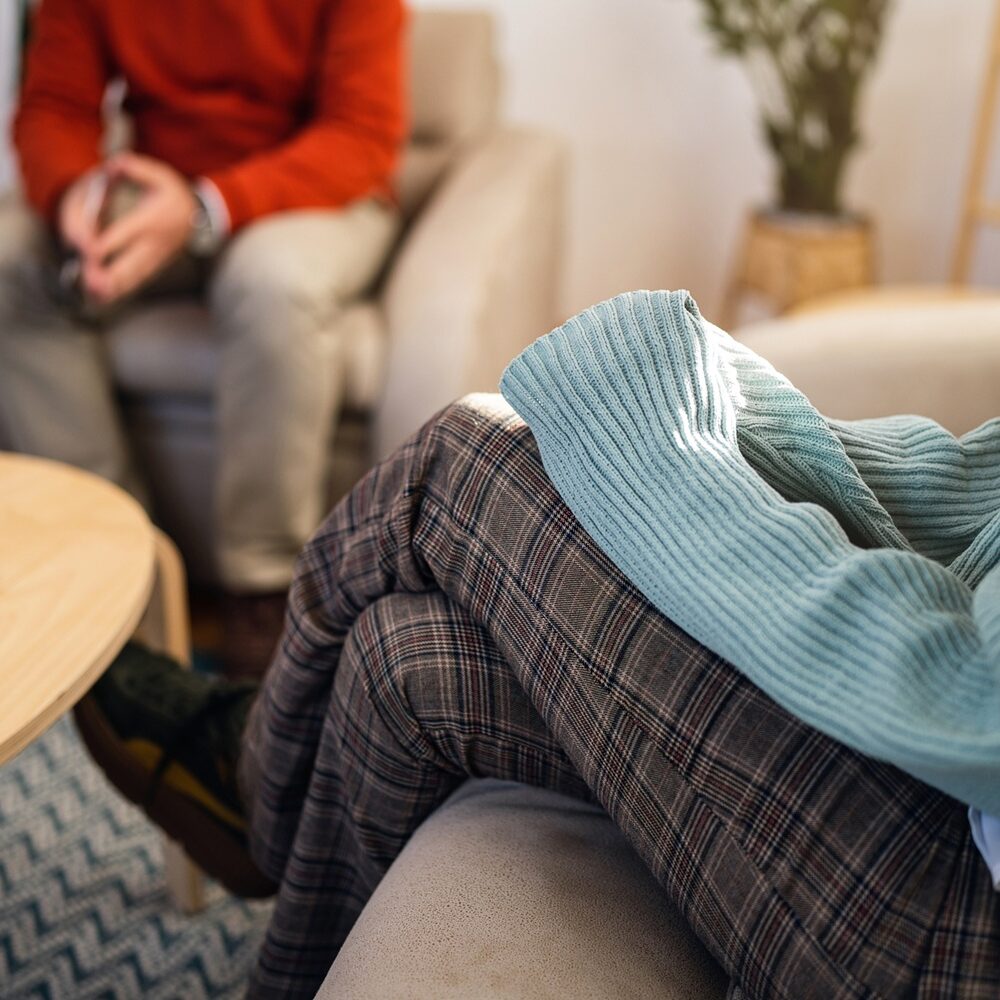
Counselling and therapeutic support
Support might include counselling or creative therapeutic work, such as memory-based activities. You might choose to write a letter to be placed on your child’s file, explaining where you are now emotionally. Then, when your child accesses their records as an adult, they can read something directly from you. Or you might simply need a safe, compassionate space to begin processing what has happened.
Kristy reflected on being told to see a GP for help after her daughters were adopted 19 years ago. She explained her situation as a birth parent and that she was having suicidal feelings, but she was sent to services that dealt solely with domestic violence, or offered therapy or counselling that wasn’t related to adoption.
Nobody knew what to do with me. Nobody could see the fact that I had lost my children was having a detrimental effect on me and my mental health, and not even a GP knew what to do with me.
Since contacting PAC-UK four years ago, Kristy understands her situation and feels better able to use her voice and to help her son understand better too.
Practical and emotional support
You might come to us needing practical or emotional support. Maybe you need help with letterbox contact – whether it’s writing a letter, preparing for an exchange, or managing the emotions that come with it. Or you might be preparing to meet your child’s adopters and want support with that.
Kristy gave an example of being with her children at a contact centre, and how it can be stressful – feeling like you’re being watched and with everything you’re doing and saying being recorded. “You’re scared to move and say the wrong thing to your child.” Having a place to talk about things like that with someone who understands is so valuable.
Peer support groups
There are monthly support groups in several areas, as well as an online group. These are informal spaces where you can drop in and meet other birth parents. There’s usually an activity to help ease some of the emotional intensity, and sometimes there are guest speakers. These groups provide a space where peer connection and understanding can grow longer-term, which many birth parents find deeply healing.
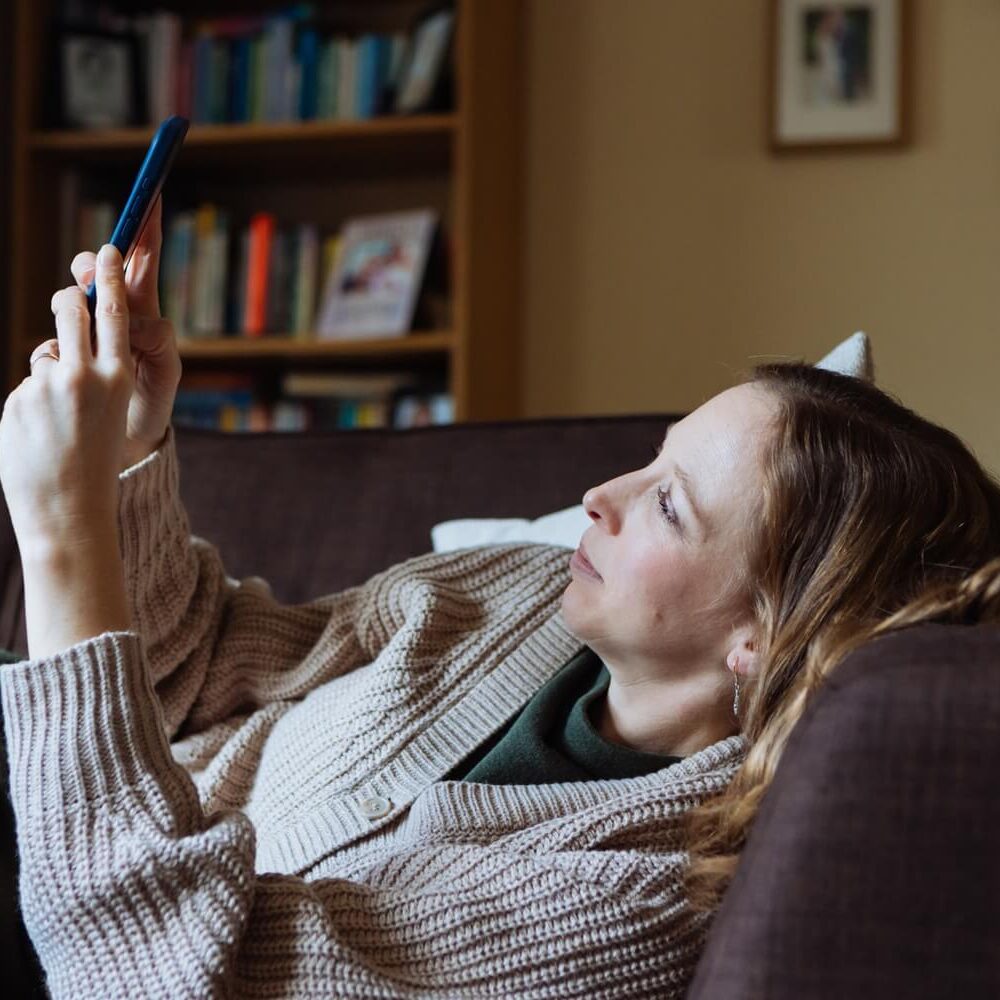
Online community
As well as the peer support groups, there’s also a private Facebook group for birth parents. It began during the pandemic as a way to stay connected when in-person support wasn’t possible and has grown significantly since then.
Kristy recalled trying to find people in a similar position to her on Facebook when it first started, but at that time, all she could find was related to adoptions in the USA, which work differently to adoptions in the UK. “I remember looking for something, somebody to relate to,” she said. “I’ve never met a birth parent before so I wanted somebody to tell me that they were going through the same.”
That’s part of why the PAC-UK Facebook group is so important. It’s a space where you can get as involved as you like.
[At first] I sat back and watched what was going on. But then in 2022, I got more involved.
Birth parents help moderate and create content, making it a positive, peer-led space where you can share and feel supported.
Practical steps you can take toward healing
While support is available through organisations and charities like ours, there are also some practical steps towards healing that you can take independently.
Be selective on social media
While social media can be a powerful tool for connection, it can also expose you to harmful content. Some online spaces focus on anger and blame, creating an environment that can make feelings of pain or injustice worse. “The other problem you’ve got is those that want to speak out about it, but they’re giving the wrong information,” Kristy added. “TikTok is rife with these people thinking they know everything about children’s services [… but] you’ve got to be so careful.”
There can also be a lot of stigma around the topic of adoption still. Kristy believes this is related to the historical adoptions of the 1950s-80s. “We still haven’t moved on from that,” she said, adding, “[There’s a perception that] if you’ve lost a child, you’re a bad person. You must have done something wrong. You weren’t capable of having that child.”

If you can, try to only engage with content that feels supportive. You could also try following accounts that share a range of experiences, including those of adopted adults, social workers, and other birth parents (see the next section for more on this).
If something you’re seeing online consistently makes you feel worse, step away from that content. And if you’re in any doubt about if the content you see is correct, or true, check with someone you trust, like one of our experts at PAC-UK.
Explore and understand through positive content
There are many podcasts, videos, and articles created by adopters, adoptees, social workers, and birth parents that offer thoughtful, honest perspectives on adoption. This kind of content can help you feel less alone and better informed. It also models healthy, constructive conversations around adoption.
Kristy highlighted how birth parents rarely have an understanding of adoption when they’re going through the process, and that only comes from other people who do have that knowledge.
They had to understand adoption to be able to help me [and] for me to be able to understand adoption. I'm in a better place now, because I have an understanding.
Some birth parents are now sharing their stories publicly and using their voices to advocate for change. Seeing others who are moving forward – not forgetting, but finding ways to live with their experience – can also offer you a sense of hope and possibility for the future.
Recognise and allow changing needs
Healing is not a linear process. There may be times when you feel ready to lean into support, and times when you don’t. That’s okay. For example, some parents attend support groups regularly, while others take breaks – but they’re always welcome back whenever they’re ready.
The impact of adoption-related trauma continues over time, and your needs may shift as you move through different stages of your healing journey. Your needs might also shift as circumstances change. For example, you might need extra support if you start the process of reviewing contact arrangements. Adoption is already complex, and ongoing changes to the adoption system contribute to this complexity.
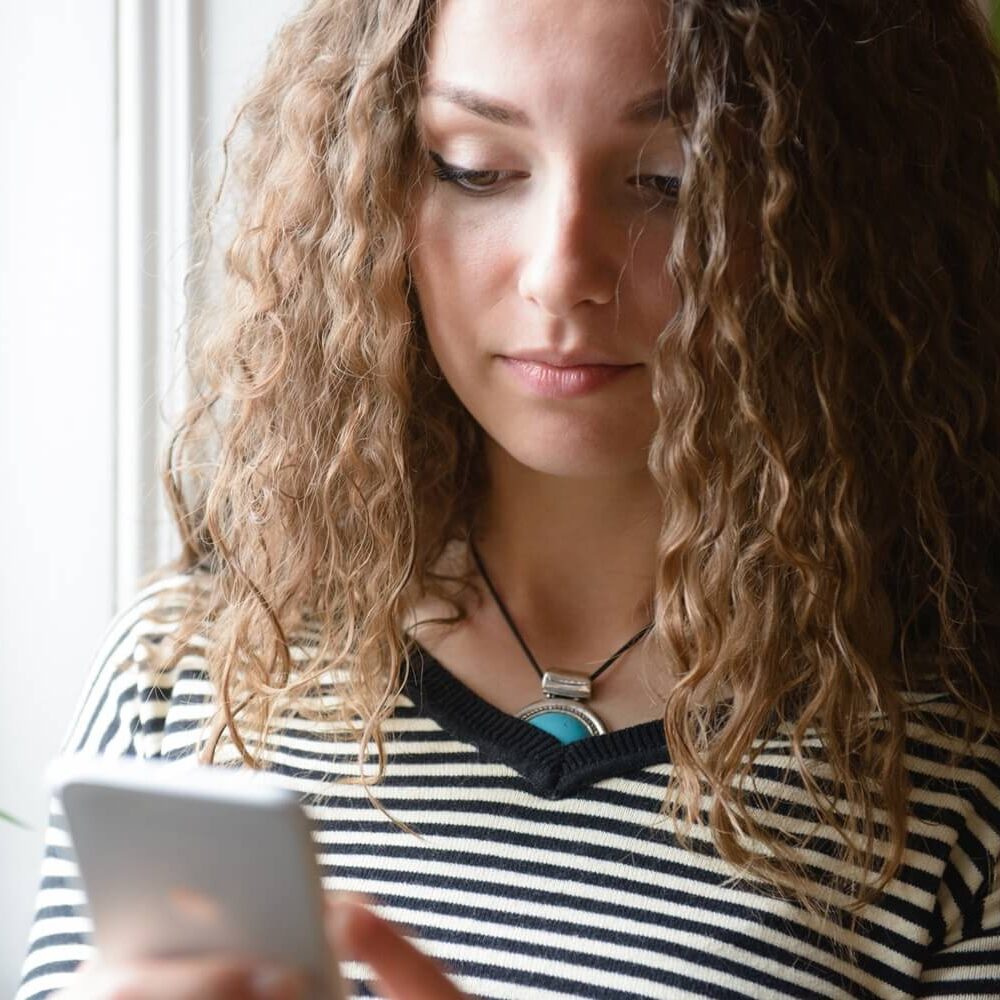
Andy got in touch with PAC-UK in 2019, and had one support session. But in 2022, he looked for more support, joining a support group. Andy said, “[That] then led to me completing the Level 2 and Level 3 in mental health, which then give me a little bit more insight of how to deal with my own mental health. It also gave me a little bit more insight of how other people seem to feel.”
For Kristy, support from PAC-UK allowed her to understand her own needs better. This led to learning more, and realising she needed more counselling. “I decided to go away and do a counselling skills course for myself and what I found at the end of that was that in fact I needed other counselling,” she said.
“I’d dealt with understanding about my children and now I needed to deal with everything that happened in my life away from the adoption and the trauma that came with that. So I went away and because I trusted in PAC-UK and got that support, I was then able to trust myself to go and find another therapist to help me with everything that had happened away from the adoption.”
More information and support
By law, every local authority must publish details of the post-adoption support available in their area. However, this information isn’t always easy to find. To locate it, try using a search engine to look up your local authority (this should be the one your child or children were under) along with the phrase “post-adoption support”.
If you’re in England and need immediate legal advice, get in touch with Family Rights Group’s advice line. You can also see the support available in your area using Family Rights Group’s service finder. Family Rights Group has also put together a collection of useful organisations and other information for those living in Northern Ireland, Scotland and Wales.
Please remember you’re not alone – many birth parents have had similar experiences, and support is available to help you navigate this journey. If you need guidance or someone to talk to, contact the PAC-UK Advice Line, which is free and confidential, by phoning 0300 1800 090 or emailing [email protected].
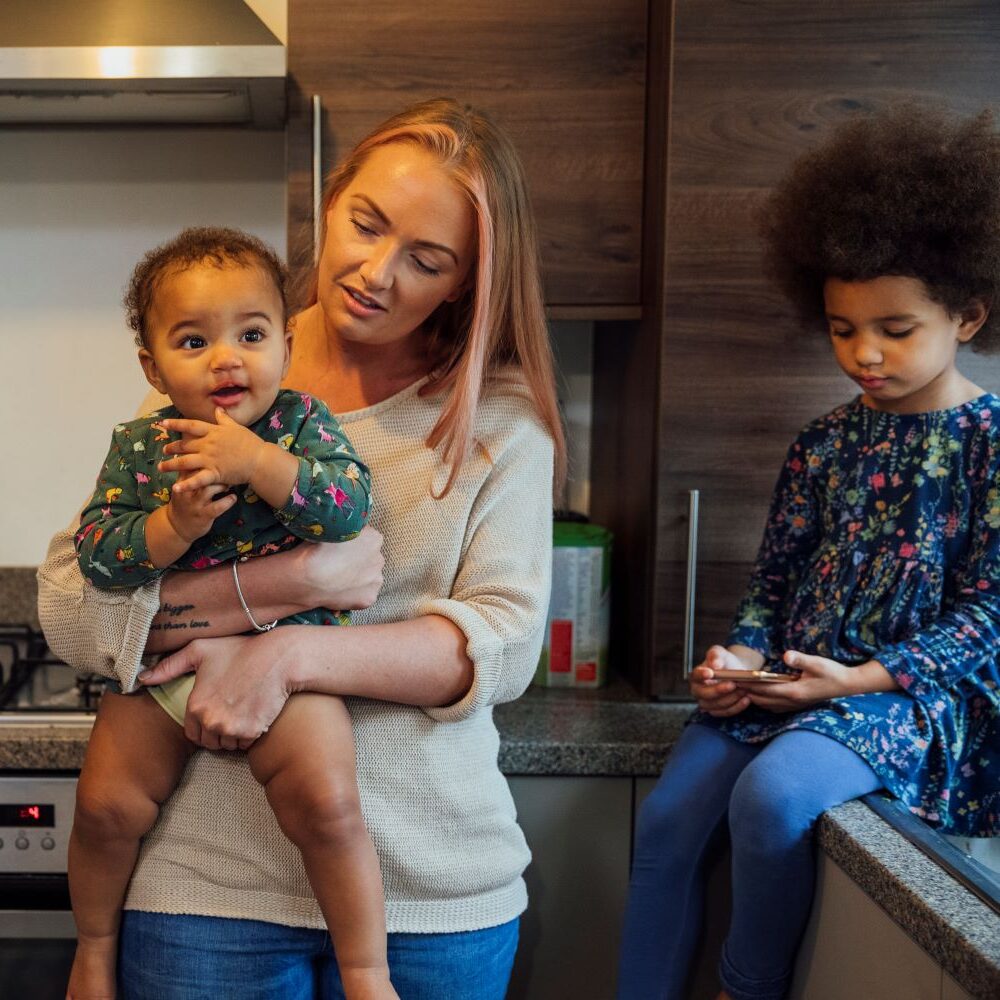
Call, text, email or web chat FamilyLine
If you’re feeling overwhelmed, worried or upset about any aspect of your family life, FamilyLine is here for you. We offer free emotional support and guidance on family relationships, conflict, parenting, caring, financial worries and more.
Contact FamilyLine